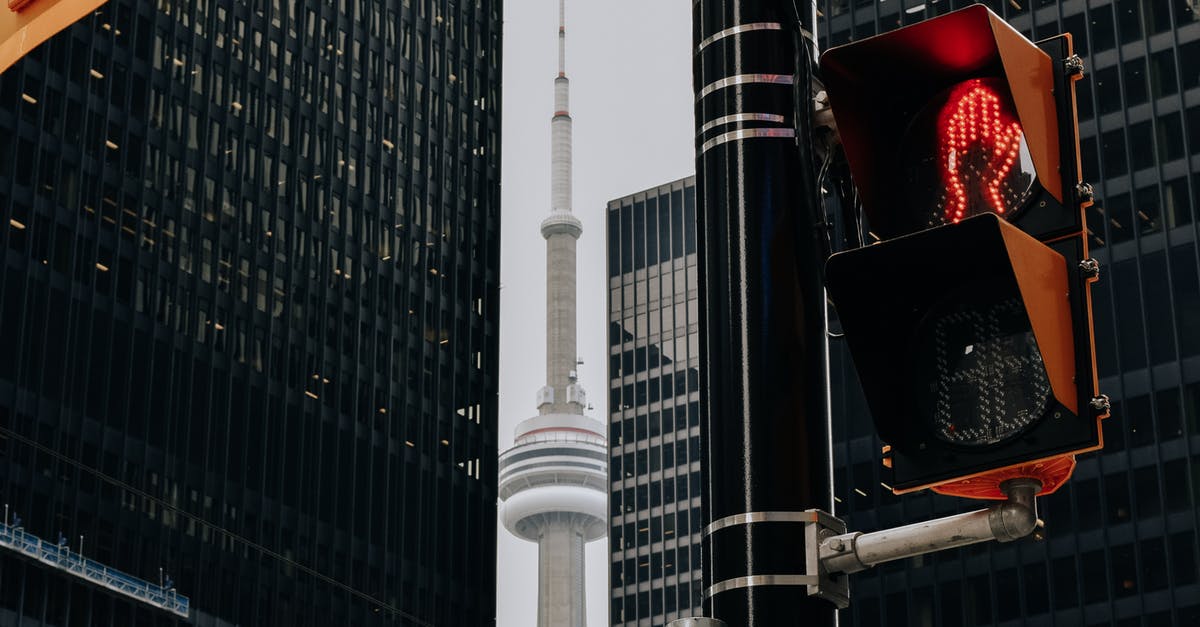What's the difference between embassies and consulates?

Today Mitt Romney called Benghazi the capital of Libya (it's Tripoli) and apparently mixed up consulates and embassies. I thought it'd be a handy question to have on here, for those sorting out visas and the like when wondering about consulates and embassies.
So, the question - from a traveller's point of view, what's the difference between an embassy and a consulate, and what would you use each one for?
Best Answer
Man, these answers are confused. Which is understandable, because this is complex, but quoting Wikipedia isn't going to do it. Here's my understanding, based on holding a diplomatic passport for 18 years and seeing all this first hand & up close.
So on a purely practical level, Doc's got it right: embassies and consulates are pretty much interchangeable from a traveller's view, as they normally both provide consular services like visas. All things being equal, it's usually better to deal with an embassy since they're usually larger and better resourced, and on occasion handle things that consulates don't. (There are exceptions, eg. sometimes embassies in awkwardly located capitals outsource visa processing to consulates in bigger cities, but this is rare.) When in doubt, check the website or give them a call.
On a legal level, let me try to straighten out the terminology a bit.
- An ambassador is a direct representative of a head of state to another country, which is why each country only has one.
- A consul is a representative of a government to another, and there can be many of these per country.
- An embassy is a permanent diplomatic mission (read: a delegation of diplomats) led by an ambassador. The term is often also used for the physical building they occupy, but that's more correctly termed a chancery.
- A consulate is a government delegation led by a consul. Likewise, the word is often used to describe the building itself.
- Consular services is the umbrella term for services provided to individuals: visas, passports, etc.
- A honorary consul is a local eminent person, often a citizen of the host country with business ties to the other, who has been granted (very) limited powers to provide consular services in a place that wouldn't otherwise have any.
- An honorary consulate is wherever said eminent person chooses to hang his or her fancy plaque on the wall. These are usually useless for day-to-day travel, since they generally have no regular opening hours or powers to issue visas, but they can be handy in an emergency (arrested, passport lost, etc).
In theory, the Vienna conventions try to divide the roles of diplomats and consuls, so that diplomats/embassies take care of state-to-state relations and consuls/consulates should handle the day-to-day grunt work of providing consular services. In practice, though, these roles are happily muddled; while consulates don't do state-to-state diplomacy, virtually all embassies handle consular services. Sometimes the embassy has a separate "consular section", which may even be in a different location, but it's still overseen by the ambassador and thus an integral part of the embassy.
Finally, having a full-fledged consulate without a corresponding embassy would be unusual in the extreme. (I know of one case, the Estonian consulate general in Sydney, and they're replacing that with an embassy in Canberra in 2015.) What's more common is that an ambassador is accredited to multiple countries, and the "sub"-countries without an embassy have honorary consulates.
Pictures about "What's the difference between embassies and consulates?"



What is higher consulate or embassy?
Definition of an EmbassyAn embassy is larger and more important than a consulate and is described as a permanent diplomatic mission, which is generally located in a country's capital city.What are embassies and consulates for?
Embassies and consulates allow governments to cultivate political alliances, maintain cultural and trade relationships, and facilitate travel between citizens of their territories.What is the purpose of a consulate?
Consulates provide passport, birth registration and many others services for visiting or resident American citizens in a country. They also have consular sections which issue visas for foreign citizens to visit, study and work in the United States.Rnbstylerz \u0026 AREES - WHAT
More answers regarding what's the difference between embassies and consulates?
Answer 2
I disagree with Doc. There is a difference even from a travelers perspective.
The main difference can be described as follows: The embassy is a representative of its government in a foreign country. Whereas a consulate is a representative of its public administration. So as a traveler you should only be concerned with a consulate. The embassy typically acts as a communication channel between governments.
Both bodies could reside in the same building, but are usually distinct authorities with their respective responsibilities and hierarchies.
Embassies are typically only situated in the same city as the hosting government. A consulate could be located anywhere preferably at a location where many of its citizens are located.
There is also this notion of a honerary consul, where the consul is not a citizen of the country it represents.
Answer 3
The two highly voted answers are not entirely correct. Embassies represent the interest of their home country, consulates serve the public (EDITED, see comments below). Of course, each country has some freedom in how to organize their diplomatic network but that's the general idea and it's regulated by international treaties.
To take an example I have first-hand experience with, to get a renewal of my passport or any other official business involving my home country, I have to go to a consulate, not an embassy. The catch is that most embassies also have a “consular section” (something like a consulate within the embassy) but that's not a rule or a given. It's rare but possible for an embassy not to have one. In this case, a stranded traveler who would show up to get emergency documents or a visa wouldn't be received at all and instead sent to a (general) consulate, often in another town, possibly even in another country. It might seem like a somewhat theoretical distinction because it's not very common but it does happen.
Some examples:
- Belgian embassy in Brazil.
- British, French, or US embassy in the Netherlands (all in the Hague, all have a consulate general in Amsterdam, the UK even used to handle at least some visa applications in Düsseldorf, Germany).
- French, US and other embassies in Australia (embassies are in Canberra, consulates are spread all over the country).
- French embassies in Montenegro (no consulate at all), South Africa (consulate in Cape Town and Johannesburg) and Switzerland (two consulates in the French-speaking part of the country but no consular section in Bern).
- Swiss embassies in Bratislava, Budapest, Ljubljana, Prague and Zagreb (residents of these countries have to go to Vienna, Austria).
Even when the embassy does offer consular services, it's not unusual to have several full-fledged consulates within one embassy's purview (e.g. in large countries like the US or across several smaller countries served by a single embassy). Having a consulate without an embassy is therefore actually not that rare. For emergencies, it presumably does not matter but if you need a visa or a new regular passport, there is often only one consulate in charge and it might very well be in a city without embassies.
Bottom line, embassies and consulates are not really interchangeable and in all these cases, it makes a practical difference. As a traveler, what you need is consular services and the relevant country should provide information on how you go about obtaining them. Even if at the end of the day, that will often mean showing up at the embassy's address, you don't care about and don't need an embassy per se (incidentally, as a EU citizen, under certain conditions, you might get them through another EU member state's diplomatic network).
Answer 4
Embassy represents country dealing with the host's government. There is always only one embassy per country, it's lead by an ambassador.
Consulate represents country dealing with individuals. There may be numerous consulates per country, there may be numerous consuls.
Confusion arises from the fact, that most often the building housing an embassy (diplomatic mission) also called embassy. And most often also houses the main consulate. From traveler point of view, you are interested only in consular services.
From Wikipedia:
The political title Consul is used for the official representatives of the government of one state in the territory of another, normally acting to assist and protect the citizens of the consul's own country, and to facilitate trade and friendship between the peoples of the two countries. A consul is distinguished from an ambassador, the latter being a representative from one head of state to another. There can be only one ambassador from one country to another, representing the first country's head of state to that of the second, and his or her duties revolve around diplomatic relations between the two countries; however, there may be several consuls, one in each of several main cities, providing assistance with bureaucratic issues to both the citizens of the consul's own country travelling or living abroad and to the citizens of the country the consul resides in who wish to travel to or trade with the consul's country.
Answer 5
The embassy is the official "link" between one country and another. It's the "bridge" between our State Department, and their Foreign Office or equivalent. Unless you're a State Department official, the Ambassador, at least a (first, second or third) "secretary," or part of their support staff, you don't really belong there.
The consulate is where the "day to day" stuff gets done. Like stamping passports and visas for travelers, and making arrangements so that travelers will be safe in a foreign country.
Each country can have only one embassy in another country, but a country can have as many consulates (in as many cities) as is necessary to "get the job done" in ensuring the safety and well-being of outgoing nationals, and incoming foreign nationals.
Sources: Stack Exchange - This article follows the attribution requirements of Stack Exchange and is licensed under CC BY-SA 3.0.
Images: Antony Trivet, Anastasia Shuraeva, Tim Gouw, Ron Lach
